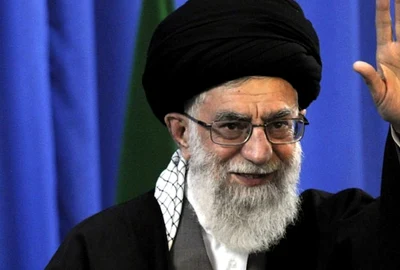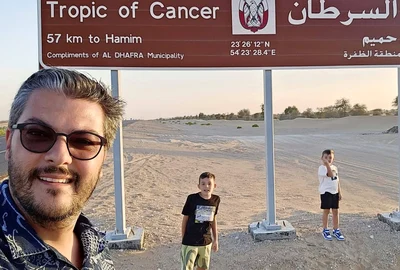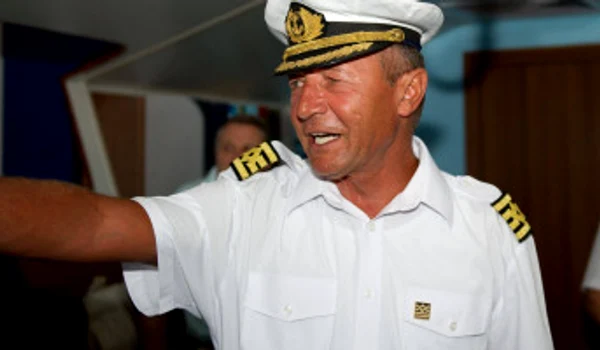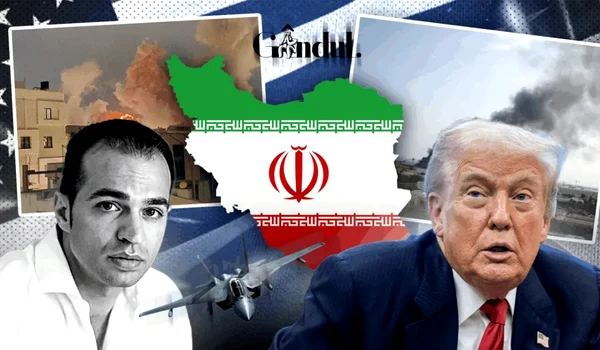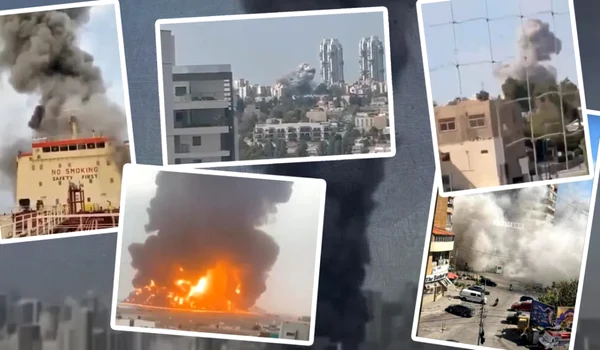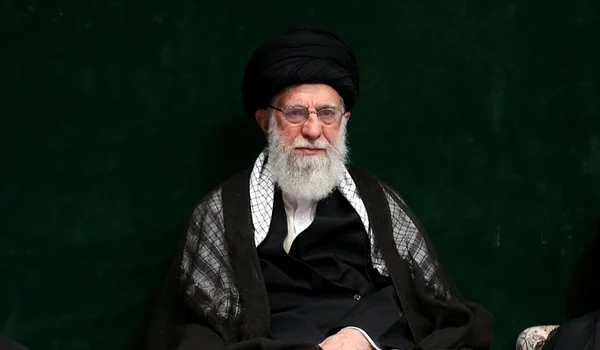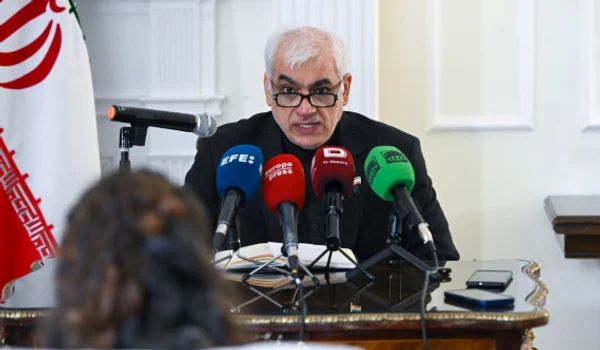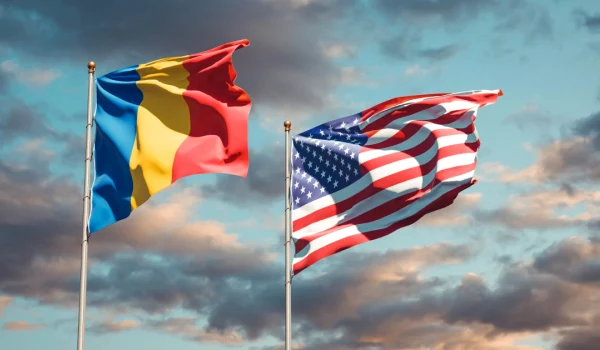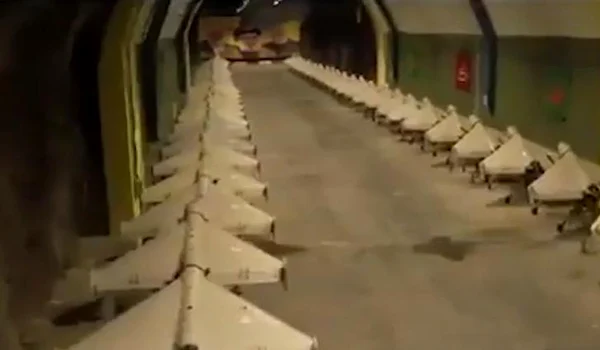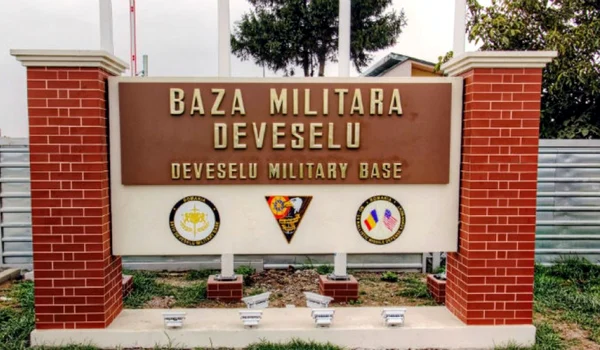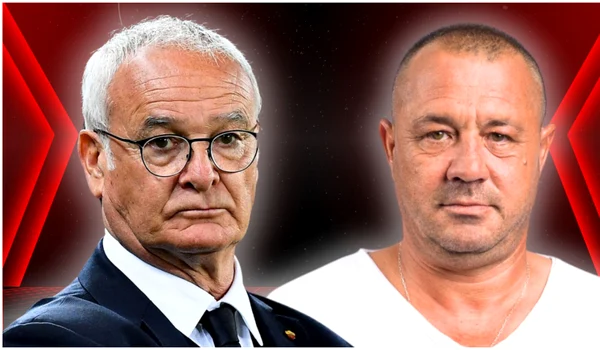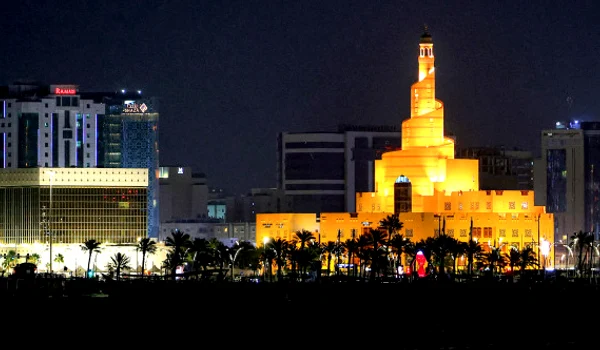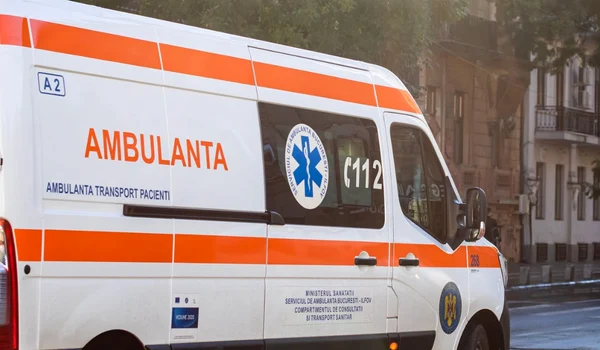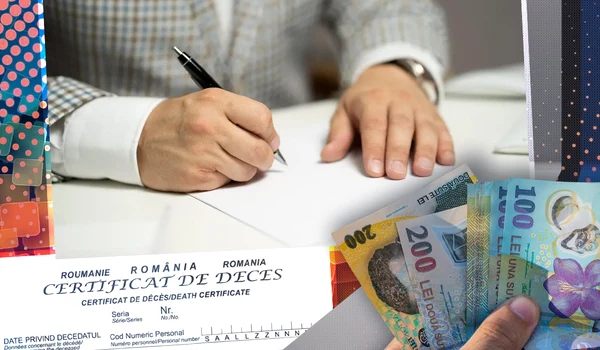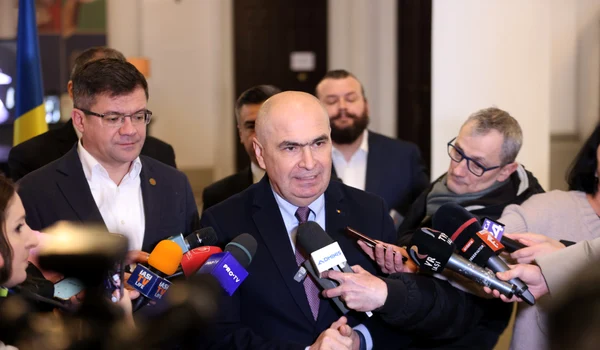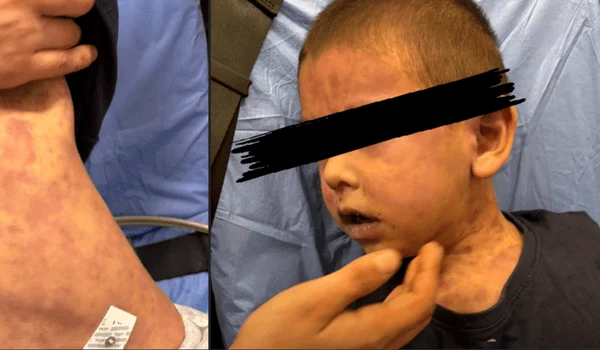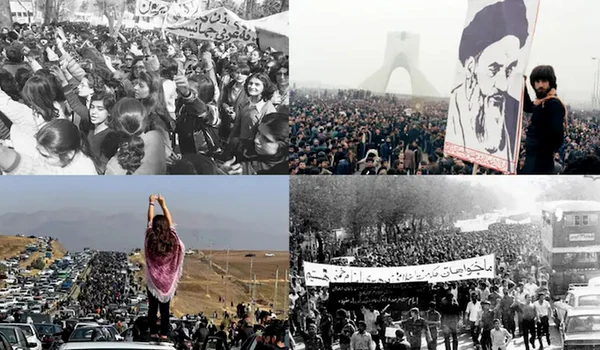
Atât poate face acum Consiliul de Securitate al ONU. Tragedia din Gaza continuă
0În finalul acestui articol puteți citi textul integral al Rezoluției adoptate ieri de Consiliul de Securitate al ONU în speranța că asta ar putea contribui la rezolvarea crizei umanitare teribile din Gaza. 15 voturi „pentru” și două abțineri (SUA și Rusia) au permis adoptarea textului, un compromis călduți și cum se va vedea extrem de ineficace, asta deoarece singurul apel existent este cel în favoarea unor ”pauze umanitare urgente și prelungite în culoarele din banda Gaza pe o durată suficientă de timp pentru a permite un acces umanitar complet, rapid, sigur și fără obstacole ”. Doar atât. Și pentru a se ajunge la acest rezultat, triumf al diplomației de tip ONU, delegațiile au dus tratative foarte dure timp de o săptămână, scopul fiind de a se ajunge la un compromis care , din nou, să dea satisfacție delegației SUA care, solidară cu Israelul, s-a opus cu îndârjire (amenințând cu folosirea din nou a dreptului său de veto) la orice formulare care ar fi implicat o cerere de încetare a focului.
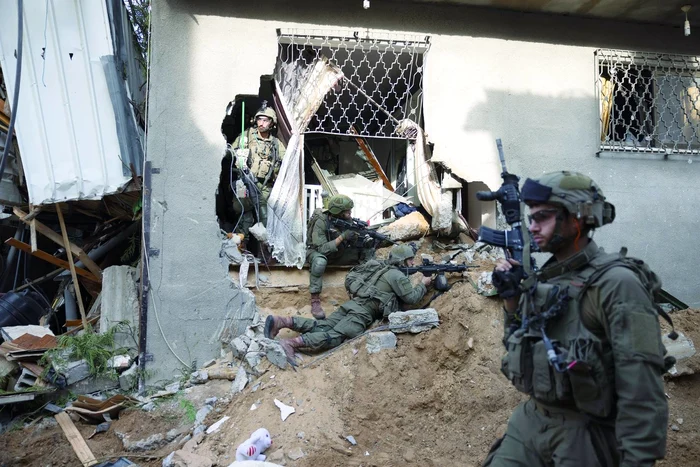
United Nations
Într-adevăr, primul proiect de Rezoluție cerea adoptarea de „măsuri urgente...pentru a crea condițiile unei încetări durabile a ostilităților” , formulare care, fie și teoretic, ar fi putut să se apropie de obiectivele atât de îndepărtate acum înscrise în Carta ONU, lăsând o poartă deschisă pentru implicarea viitoare a organizației în găsirea unei soluții alta decât războiul total din Gaza. Ce s-a reușit este doar un text cu obiective diluate și un limbaj edulcorat și care dorește „să creeze condiții pentru o încetare durabilă a ostilităților” , nimic mai mult, nimic ca măsură obligatorie și nici calendar obligatoriu impus părților combatante.
Contextul general a fost definit de Antonio Guterres, Secretarul General al ONU care a afirmat că „adevărata problemă” pentru aducerea de ajutor umanitar în Gaza „o constituie modul în care Israelul a purtat ofensiva sa militară, sursa de obstacole masive la distribuirea de ajutoare umanitare în Gaza”, și a insistat pe faptul că „doar o încetare a focului pe motive umanitare reprezintă singurul mijloc d a răspunde la nevoile disperate ale populației din Gaza și de a pune capăt coșmarului pe care-l trăiește aceasta”.

Dar există și voci influente care salută adoptarea Rezoluției. Linda Thomas Greenfield (foto) ambasadoarea SUA la ONU, a spus că Rezoluția „oferă o lumină de speranță în mijlocul unor suferințe omenești inimaginabile” , iar omologul său israelian, Gilad Erdan a mulțumit SUA de a fi „stat alături de Israel în cadrul negocierilor menținând liniile roșii definite”. În același timp, ministrul de externe israelian a transmis că vor fi inspectate în continuare, din motive de securitate, absolut toate convoaiele cu ajutoare umanitare care se îndreaptă spre Gaza.
Desigur, mai bine decât nimic, au comentat muți analiști specializați în complicatele problematici din Orientul Apropiat, tensionate acum și mai mult de ceea ce apare ca o perspectivă extrem de posibilă, adică extensia unor operațiuni militare împotriva milițiilor Hezbollah din Liban.
Toate negocierile se poartă pe fondul intensificării riscurilor de insecuritate alimentară așa cum au fost ele prezentate, în cel mai recent (și poate cel mai dramatic) raport al Programului alimentar mondial al ONU: se vorbea despre „riscul imediat de foamete în Gaza unde apa și alimentele sunt cvasi inexistente”. Sistemul ONU de clasificare pentru a determina „insecuritatea alimentară” are cinci nivele și experții instituției spun că, până pe 7 februarie, totalitatea populației din Gaza (adică aproximativ 2,2 milioane de persoane) va fi în situația de criză provocată de foamete sau chiar mai rău decât atât...este vorba despre proporția cea mai ridicată de persoane confruntate cu diverse nivele de insecuritate alimentară în raport cu sistemul nostru de evaluare înregistrată vreodată pentru o țară sau o regiune din lume”

Pe fond, după votul asupra Rezoluției, au rămas fără răspuns toate dilemele anterioare și, mai ales, cea mai importantă din întrebări: cine poate , cine trebuie, cine ar fi mandatat să asigure în vreun fel securitatea transporturilor umanitare în Gaza atâta timp cât armata israeliană și guvernul de la Ierusalim au confirmat că ofensiva militară va continua fără niciun fel de întrerupere?
Exact asta ar fi trebuit să facă ONU, exact pentru a răspunde acestui tip de situații au fost create numeroasele sale organisme și agenții, aceasta ar fi fost forma prin care să-și impună autoritatea de manager supra-național al situațiilor de conflict. N-are această capacitate și, în loc de asta, singura funcție pe care o mai are este să medieze formule diplomatice acceptabile care să nu ofenseze orgoliile politice sau să răspundă presiunilor marilor acționari și finanțatorilor organizației. Probă, spre exemplu, textul acestei Rezoluții în care se vorbește doar despre „părțile implicate în conflict” fără să fie pomenit numele organizației Hamas, cu atât mai puțin faptul că totul a început prin atacul terorist al celor din Hamas împotriva unor civili nevinovați pe teritoriul Israelului.
Consecința blocajelor reciproce atât de profesioniste și eficiente între marile puteri duce la singura concluzie posibilă: războiul nemilos din Gaza, poate nu numai de acolo, va continua și va genera reacții și contra-reacții din cele mai tragice. Și astfel se va eroda în plus ceea ce mai rămăsese din vechea arhitectură internațională, fără șanse reale de reconstituire.
=================================================
READ THE FULL RESOLUTION 2720 (2023)
· The Security Council
· Reaffirming the purposes and principles of the Charter of the United Nations,
· Recalling all of its relevant resolutions, particularly resolution 2712 (2023), which, inter alia, demands that all parties comply with their obligations under international law, notably with regard to the protection of civilians, calls for urgent and extended humanitarian pauses and corridors throughout the Gaza Strip for a sufficient number of days to enable full, rapid, safe, and unhindered humanitarian access and to enable urgent rescue and recovery efforts, and calls for the immediate and unconditional release of all hostages, as well as ensuring immediate humanitarian access,
· Reaffirming that all parties to conflicts must adhere to their obligations under international law, including international humanitarian law and international human rights law, as applicable,
· Stressing that the Gaza Strip constitutes an integral part of the territory occupied in 1967, and reiterating the vision of the two-State solution, with the Gaza Strip as part of the Palestinian State,
· Expressing deep concern at the dire and rapidly deteriorating humanitarian situation in the Gaza Strip and its grave impact on the civilian population, underlining the urgent need for full, rapid, safe, and unhindered humanitarian access into and throughout the entire Gaza Strip, and taking note of the concerning reports from the leadership of the United Nations and humanitarian organizations in this regard, reaffirming its strong concern for the disproportionate effect that the conflict is having on the lives and well-being of children, women, and other civilians in vulnerable situations, and stressing the humanitarian principles of humanity, impartiality, neutrality, and independence,
· Stressing the obligation to respect and protect humanitarian relief and medical personnel,
· Reaffirming its call for all parties to refrain from depriving the civilian population in the Gaza Strip of basic services and humanitarian assistance indispensable to their survival, consistent with international humanitarian law,
· Commending the indispensable and ongoing efforts of the United Nations, its specialized agencies and all humanitarian and medical personnel in the Gaza Strip to alleviate the impact of the conflict on the people in the Gaza Strip, and expressing condolences for all civilians, including humanitarian and medical personnel, killed in the course of this conflict,
· Welcoming the efforts of Egypt to facilitate the use of the Rafah Border crossing by United Nations humanitarian agencies and their implementing partners for the provision of humanitarian assistance for people in need throughout the Gaza Strip,
· Taking note of the 15 December 2023 decision by the Government of Israel to open its crossing at Karem Abu Salem / Kerem Shalom for direct delivery of humanitarian assistance to Palestinian civilians in Gaza, which should ease congestion and help facilitate the provision of life-saving assistance to those who urgently need it, and emphasizing the need to continue working closely with all relevant parties to expand the delivery and distribution of humanitarian assistance, while confirming its humanitarian nature and ensuring that it reaches its civilian destination,
· Encouraging engagement with relevant states in the implementation of this resolution,
· Welcoming the implementation of a recent ‘humanitarian pause’ in the Gaza Strip, and expressing appreciation for the diplomatic efforts of Egypt, the State of Qatar, and other states in this regard, and also expressing grave concerns as to the impact the resumption of hostilities has had on civilians,
· Recognizing that the civilian population in the Gaza Strip must have access to sufficient quantities of assistance that they need, including enough food, water, sanitation, electricity, telecommunications and medical services essential for their survival, and that the provision of humanitarian supplies in the Gaza Strip needs to be sufficient to alleviate the massive humanitarian needs of the Palestinian civilian population throughout the Gaza Strip, and recognizing the importance of resuming commercial imports of essential goods and services into the Gaza Strip,
· Welcoming financial contributions and pledges by member states in support of the civilian population in Gaza, and taking note of the International Humanitarian Conference for the Civilian Population of Gaza held in Paris on 9 November 2023 and its follow-up meeting on 6 December 2023,
· 1. Reiterates its demand that all parties to the conflict comply with their obligations under international law, including international humanitarian law, including with regard to the conduct of hostilities and the protection of civilians and civilian objects, humanitarian access, and the protection of humanitarian personnel and their freedom of movement, and the duty, as applicable, of ensuring the food and medical supplies, among others, of the population, recalls that civilian and humanitarian facilities, including hospitals, medical facilities, schools, places of worship, and facilities of the UN, as well as humanitarian personnel, and medical personnel, and their means of transport, must be respected and protected, according to international humanitarian law, and affirms that nothing in this resolution absolves the parties of these obligations;
· 2. Reaffirms the obligations of the parties to the conflict under international humanitarian law regarding the provision of humanitarian assistance, demands that they allow, facilitate and enable the immediate, safe and unhindered delivery of humanitarian assistance at scale directly to the Palestinian civilian population throughout the Gaza Strip, and in this regard calls for urgent steps to immediately allow safe, unhindered, and expanded humanitarian access and to create the conditions for a sustainable cessation of hostilities;
· 3. Demands that the parties to the conflict allow and facilitate the use of all available routes to and throughout the entire Gaza Strip, including border crossings, including full and prompt implementation of the announced opening of the Karem Abu Salem / Kerem Shalom Border Crossing, for the provision of humanitarian assistance in order to ensure that humanitarian personnel and humanitarian assistance, including fuel, food, and medical supplies and emergency shelter assistance, reaches the civilian population in need throughout the Gaza Strip without diversion and through the most direct routes, as well as for material and equipment to repair and ensure the functioning of critical infrastructure and to provide essential services, without prejudice to the obligations of the parties to the conflict under international humanitarian law, and stresses the importance of respecting and protecting border crossings and maritime infrastructure used for the delivery of humanitarian assistance at scale;
· 4. Requests the Secretary-General, with the objective of expediting the delivery of humanitarian assistance to the civilian population in the Gaza Strip, to appoint a Senior Humanitarian and Reconstruction Coordinator with responsibility for facilitating, coordinating, monitoring, and verifying in Gaza, as appropriate, the humanitarian nature of all humanitarian relief consignments to Gaza provided through states which are not party to the conflict, and further requests that the Coordinator expeditiously establish a UN mechanism for accelerating the provision of humanitarian relief consignments to Gaza through states which are not party to the conflict, consulting all relevant parties, with the goal of expediting, streamlining, and accelerating the process of providing assistance while continuing to help ensure that aid reaches its civilian destination, and demands that the parties to the conflict cooperate with the Coordinator to fulfill their mandate without delay or obstruction;
· 5. Requests that the Coordinator be appointed expeditiously;
· 6. Determines that the Coordinator will have the necessary personnel and equipment in Gaza, under the authority of the United Nations, to perform these, and other functions as determined by the Security Council, and requests that the Coordinator report to the Security Council on its work, with an initial report within 20 days and thereafter every 90 days through 30 September 2024;
· 7. Demands the immediate and unconditional release of all hostages, as well as ensuring humanitarian access to address medical needs of all hostages;
· 8. Demands the provision of fuel to Gaza at levels that will meet requisite humanitarian needs;
· 9. Calls for all parties to adhere to international humanitarian law and in this regard deplores all attacks against civilians and civilian objects, as well as all violence and hostilities against civilians, and all acts of terrorism;
· 10. Reaffirms the obligations of all parties under international humanitarian law, including with regard to respecting and protecting civilians and taking constant care to spare civilian objects, including such objects critical to the delivery of essential services to the civilian population, and with regard to refraining from attacking, destroying, removing or rendering useless objects that are indispensable to the survival of the civilian population, as well as respecting and protecting humanitarian personnel and consignments used for humanitarian relief operations;
· 11. Reaffirms that civilian objects, including places of refuge, including within United Nations facilities and their surroundings, are protected under international humanitarian law, and rejects forced displacement of the civilian population, including children, in violation of international law, including international humanitarian law and international human rights law;
· 12. Reiterates its unwavering commitment to the vision of the two-State solution where two democratic States, Israel and Palestine, live side by side in peace within secure and recognized borders, consistent with international law and relevant UN resolutions, and in this regard stresses the importance of unifying the Gaza Strip with the West Bank under the Palestinian Authority;
· 13. Demands that all parties to the conflict take all appropriate steps to ensure the safety and security of United Nations and associated personnel, those of its specialized agencies, and all other personnel engaged in humanitarian relief activities consistent with international humanitarian law, without prejudice to their freedom of movement and access, stresses the need not to hinder these efforts, and recalls that humanitarian relief personnel must be respected and protected;
· 14. Demands implementation of resolution 2712 (2023) in full, requests the Secretary-General to report to the Security Council in writing within five working days of the adoption of this resolution on the implementation of resolution 2712 (2023), and thereafter as necessary, and calls upon all parties concerned to make full use of the humanitarian notification and deconfliction mechanisms in place to protect all humanitarian sites, including UN facilities, and to help facilitate the movement of aid convoys, without prejudice to the obligations of the parties to uphold international humanitarian law;
· 15. Requests the Secretary-General to report on the implementation of this resolution in the regular reporting to the Council;
· 16. Decides to remain actively seized of the matter.






